Question And Answer
Publications
Articles, publications, books, tools and multimedia features from the U.S. Institute of Peace provide the latest news, analysis, research findings, practitioner guides and reports, all related to the conflict zones and issues that are at the center of the Institute’s work to prevent and reduce violent conflict.
Conventional Wisdom about Information Technology
When I started to examine the impact of information technology on international relations a few years ago, I was initially attracted to the topic because there was not a lot of conventional wisdom on it. Compared to NATO enlargement, peacekeeping or ethnic conflict, this was a very new topic.
Virtual Tools for Real Diplomacy
I'm very excited to be talking to you because the era of computing that we're starting to get into is about to explode. The next ten years are going to require your expertise, the expertise of diplomacy, of understanding human beings, of understanding human affairs.
The Topology of Sovereignty
Traditional diplomacy is about territory. It works on the assumption that human communities are organized in sovereign nation-states with clearly defined borders. Such diplomacy is much more comfortable with geography than with anything else.
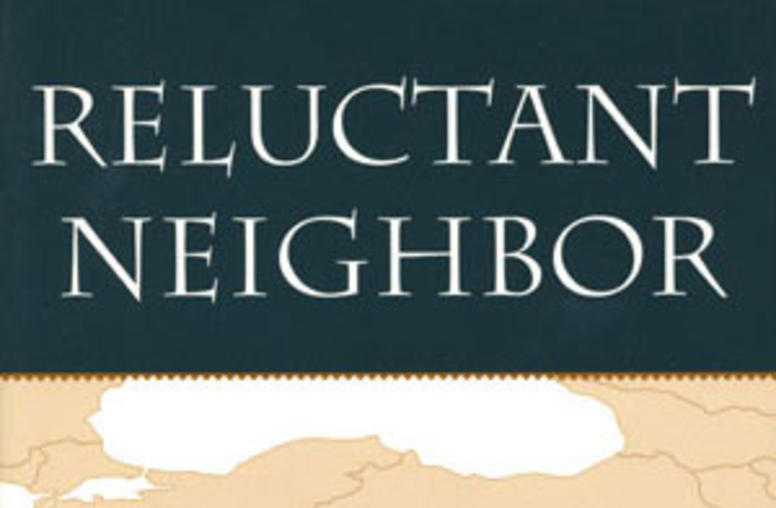
Reluctant Neighbor
The essays in this volume fill an important gap in the literature on Turkey and the Middle East, bringing together the points of view of scholars, journalists, and other observers from the United States, Europe, Turkey, and the Middle East for an unprecedented dialogue on issues of growing importance.
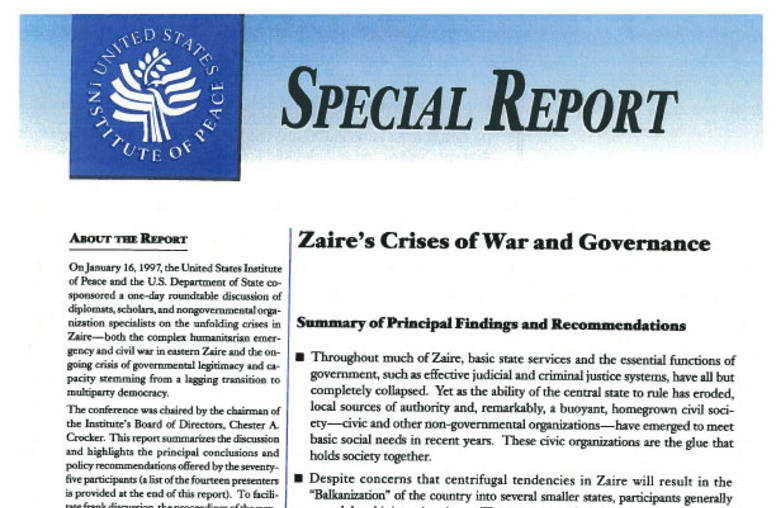
Zaire's Crises of War and Governance
On January 16, 1997, the United States Institute of Peace and the U.S. Department of State cosponsored a one-day roundtable discussion of diplomats, scholars, and nongovernmental organization specialists on the unfolding crises in Zaire-both the complex humanitarian emergency and civil war in eastern Zaire and the ongoing crisis of governmental legitimacy and capacity stemming from a lagging transition to multiparty democracy.
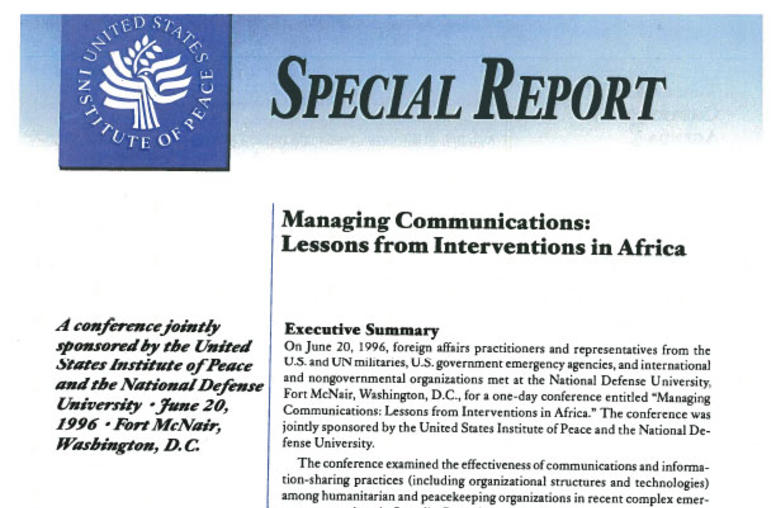
Managing Communications: Lessons from Interventions in Africa
"Managing Communications: Lessons from Interventions in Africa," the conference was jointly sponsored by the United States Institute of Peace and the National Defense University. It examined the effectiveness of communications and information-sharing practices (including organizational structures and technologies) among humanitarian and peacekeeping organizations in recent complex emergency operations in Somalia, Rwanda, and Liberia.
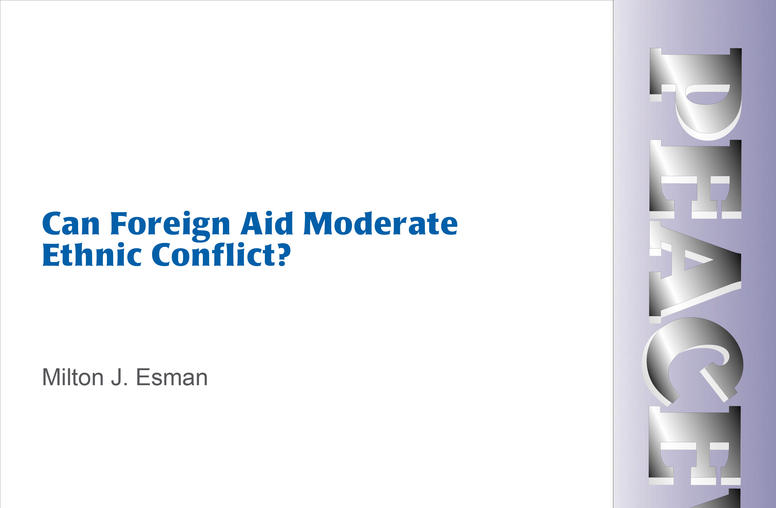
Can Foreign Aid Moderate Ethnic Conflict?
Since World War II, a complex network has emerged of bilateral and multilateral agencies that manage economic assistance to low-income countries in the form of investment projects, policy advice, and technical assistance. Although each of these agencies has its distinctive personality, most of them have avoided facing up to the post–Cold War reality of burgeoning ethnic conflict.
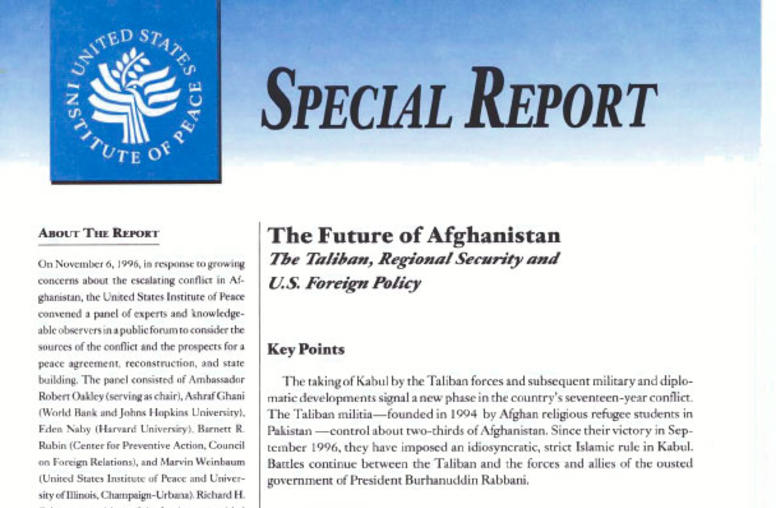
The Future of Afghanistan: The Taliban, Regional Security and U.S. Foreign Policy
In response to growing concerns about the escalating conflict in Afghanistan, the United States Institute of Peace convened a panel of experts and knowledgeable observers in a public forum to consider the sources of the conflict and the prospects for a peace agreement, reconstruction, and state building.
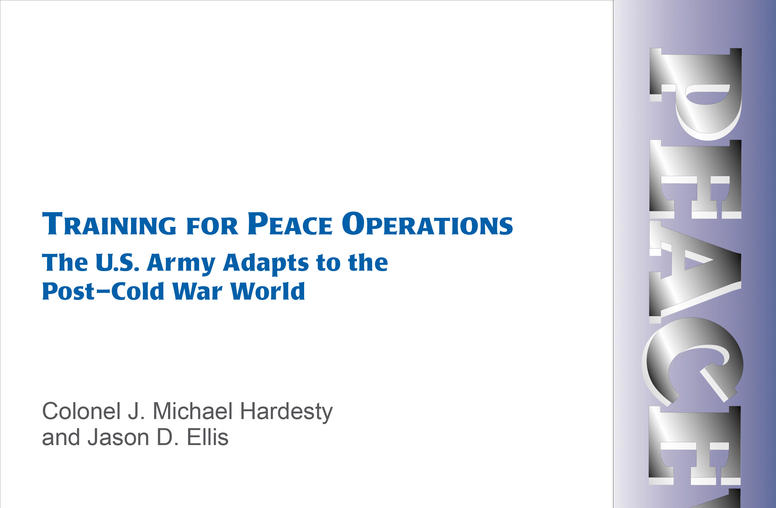
Training for Peace Operations: The U.S. Army Adapts to the Post-Cold War World
When the United States Institute of Peace announced a joint fellowship program with the U.S. Army War College, some observers unfamiliar with the Institute's work noted an apparent irony: Why should an organization devoted to the peaceful resolution of international conflict work with an institution whose main job is fighting wars?
Truth Commission: Guatemala
Truth Commission: Commission for Historical Clarification Duration: 1997 – 1999 Charter: Agreement on the establishment of the Commission to clarify past human rights violations and acts of violence that have caused the Guatemalan population to suffer, June 23, 1994 Commissioners: 3 Report: Public report